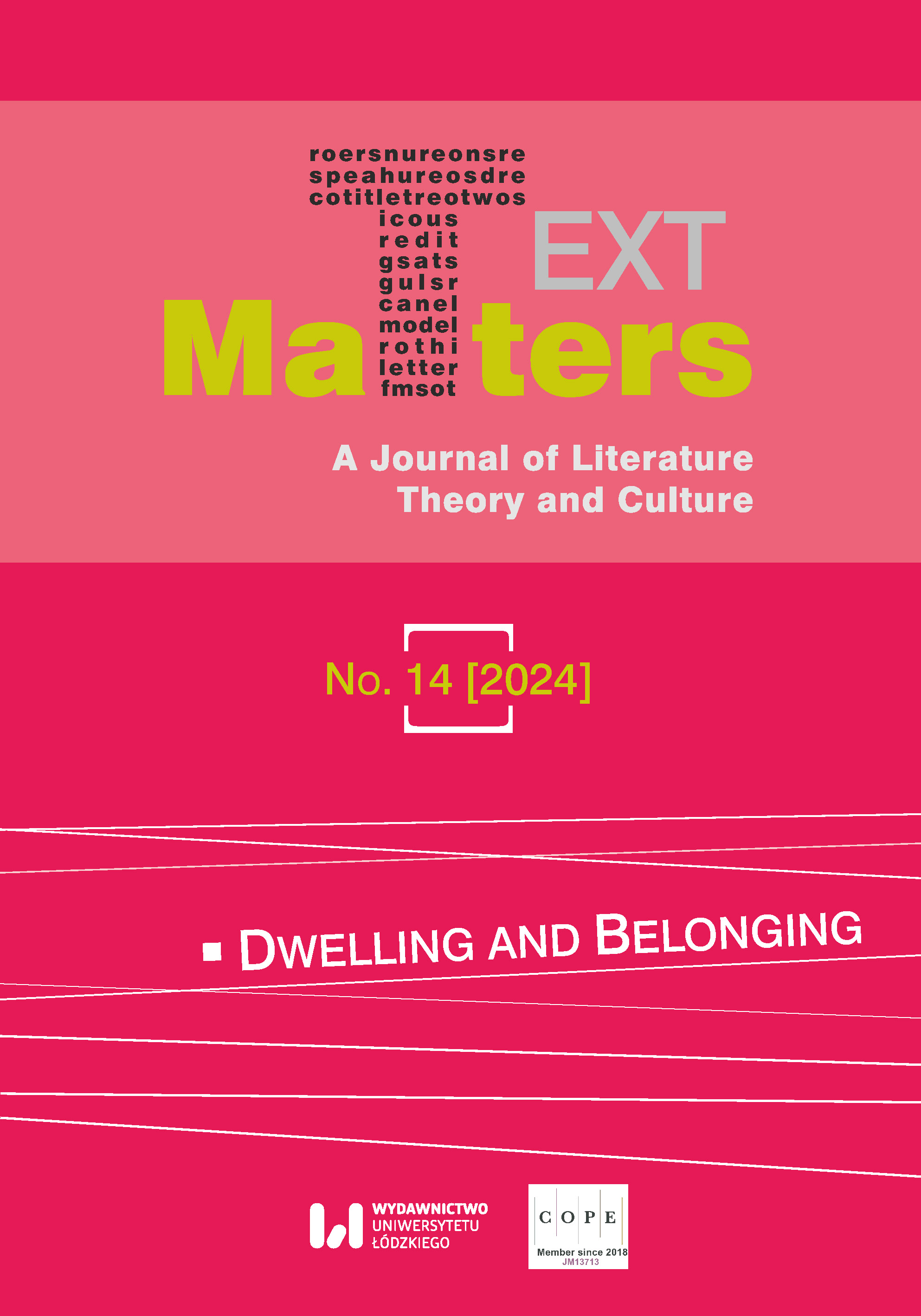Breaking the Promise of Perfection: Imperfect Utopias in Marge Piercy’s Woman on the Edge of Time
DOI:
https://doi.org/10.18778/2083-2931.14.13Keywords:
utopia, science fiction, perfection, technology, hopeAbstract
In an era still plagued by popularized skepticism toward utopian thought, Marge Piercy’s 1976 novel Woman on the Edge of Time remains a compelling exploration of potential futures. This essay juxtaposes anti-utopian critiques of perfection, violence, and instrumental rationalism with Piercy’s portrayal of both utopian and dystopian worlds. By examining these critiques alongside the novel, this essay argues for a reinterpretation of utopia beyond the assumptions of promised perfection. Rather, this essay embraces the flawed nature of the human condition and claims imperfection as a central feature of utopia itself.
Downloads
References
Clary, Benjamin. “Mood of the Nation: Majority of Americans Are ‘Extremely Worried’ about the Country in 2022.” APM Research Lab, 12 Jan. 2022, https://www.apmresearchlab.org/motn/hope-worry-2022 accessed 2 Jan. 2024.
Google Scholar
Curtis, Claire P. “Rehabilitating Utopia: Feminist Science Fiction and Finding the Ideal.” Contemporary Justice Review, vol. 7, no. 2, 2005, pp. 147–62. https://doi.org/10.1080/10282580500082507
Google Scholar
DOI: https://doi.org/10.1080/10282580500082507
Featherstone, Liza. “Don’t Be Afraid to Embrace the Utopian Spirit.” Jacobin, 12 June 2023, https://jacobin.com/2023/06/kristen-ghodsee-everyday-utopia-review-socialism-patriarchy-family accessed 13 Jan. 2024.
Google Scholar
Heidegger, Martin. Discourse on Thinking. Harper Torchbooks, 1969.
Google Scholar
Heidegger, Martin. “Traditional and Technological Language.” Translated by Wanda Torres Gregory, Journal of Philosophical Research, vol. 23, 1998, pp. 129–45. https://doi.org/10.5840/jpr_1998_16
Google Scholar
DOI: https://doi.org/10.5840/jpr_1998_16
Jacoby, Russell. Picture Imperfect: Utopian Thought for an Anti-Utopian Age. Columbia UP, 2005.
Google Scholar
Jacoby, Russell. The End of Utopia: Politics and Culture in an Age of Apathy. Basic, 1999.
Google Scholar
Jameson, Fredric. “Reification and Utopia in Mass Culture.” Social Text, no. 1, 1979, pp. 130–48. https://doi.org/10.2307/466409
Google Scholar
DOI: https://doi.org/10.2307/466409
Jameson, Fredric. “The Politics of Utopia.” New Left Review, vol. 25, Jan./Feb. 2004, pp. 35–54.
Google Scholar
Le Guin, Ursula K. The Language of the Night: Essays on Fantasy and Science Fiction. Edited by Susan Wood, Harper Perennial, 1989.
Google Scholar
Neverow, Vara. “The Politics of Incorporation and Embodiment: Woman on the Edge of Time and He, She and It as Feminist Epistemologies of Resistance.” Utopian Studies, vol. 5, no. 2, 1994, pp. 16–35. https://www.jstor.org/stable/20719310
Google Scholar
Paris (AFP). “World Will Be Same but Worse after ‘Banal’ Virus, Says Houellebecq.” France 24, 4 May 2020, https://www.france24.com/en/20200504-world-will-be-same-but-worse-after-banal-virus-says-houellebecq accessed 2 Jan. 2024.
Google Scholar
Piercy, Marge. Woman on the Edge of Time. Fawcett, 1985.
Google Scholar
Poushter, Jacob, and Christine Huang. “Despite Pandemic, Many Europeans Still See Climate Change as Greatest Threat to Their Countries.” Pew Research Center’s Global Attitudes Project, 9 Sept. 2020, https://www.pewresearch.org/global/2020/09/09/despite-pandemic-many-europeans-still-see-climate-change-as-greatest-threat-to-their-countries/ accessed 4 Jan. 2024.
Google Scholar
Robinson, Kim Stanley. “Dystopias Now.” Commune, 2 Nov. 2018, https://communemag.com/dystopias-now/ accessed 4 Sept. 2023.
Google Scholar
Rothman, Joshua. “Kim Stanley Robinson’s Latest Novel Imagines Life in an Underwater New York.” The New Yorker, 27 Apr. 2017, https://www.newyorker.com/books/page-turner/kim-stanley-robinsons-latest-novel-imagines-life-in-an-underwater-new-york accessed 9 Jan. 2024.
Google Scholar
Sargent, Lyman Tower. “The Three Faces of Utopianism Revisited.” Utopian Studies, vol. 5, no. 1, 1994, pp. 1–37.
Google Scholar
Taşkale, Ali Riza. “Art of Dystopia: Why Edward Hopper Paintings Haunt the Present Moment.” Utopian Studies, vol. 34, no. 2, 2023, pp. 350–58. https://doi.org/10.5325/utopianstudies.34.2.0350
Google Scholar
DOI: https://doi.org/10.5325/utopianstudies.34.2.0350
Zimmermann, Jens. “Guarding Our Humanity: Gadamer, Ricœur, and the Future of Philosophical Hermeneutics.” Analecta Hermeneutica, vol. 13, 2021, pp. 15–31.
Google Scholar
Published
Versions
- 2024-11-28 (2)
- 2024-11-28 (1)
How to Cite
Issue
Section
License

This work is licensed under a Creative Commons Attribution-NonCommercial-NoDerivatives 4.0 International License.













